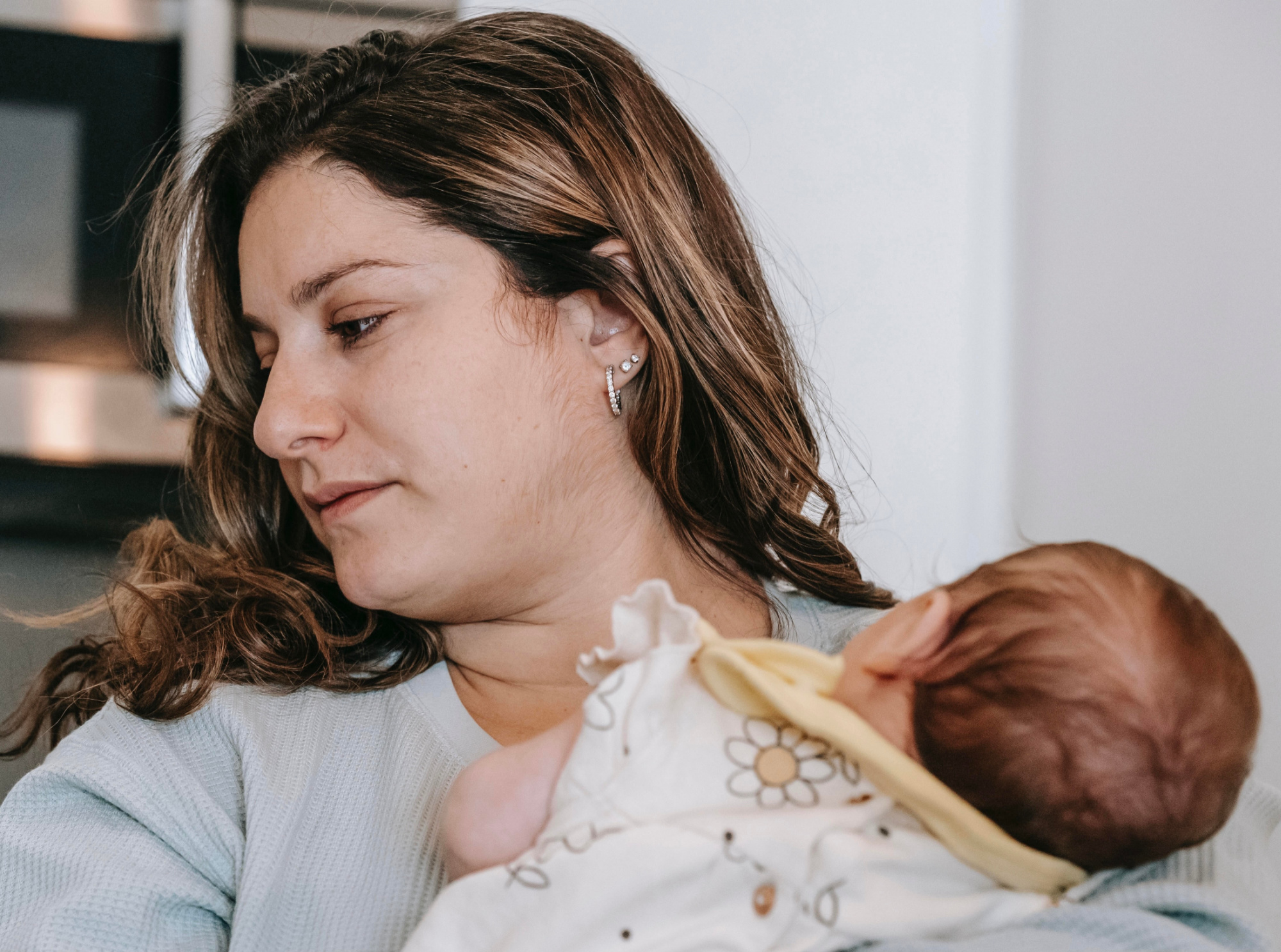Do you think you are struggling with postpartum depression? If you do, you are not alone. 1 in 5 new moms experience postpartum depression, and 1 in 10 dads do as well. Knowing how to cope with postpartum depression will allow you to minimize the severity and shorten the duration. And remember, you are not alone.
It is important to understand that postpartum depression is different than depression outside of childbirth.
While it does have many of the same symptoms of major depression, including anxiety, anger and rage, frustration, inappropriate guilt, and suicidal ideation, it also includes grief and loss. All the symptoms are connected to the baby and parenthood.
Postpartum depression has been used as a broad term for the many different perinatal mood and anxiety experiences.
Whatever your symptoms look like, the first step is to get a diagnosis from an expert in the field of perinatal mental health.
After your diagnosis, knowing how to cope with postpartum depression will support your recovery so that you can start feeling more like yourself.
How to cope with postpartum depression and the spectrum of perinatal mental health:
This might be obvious, but therapy is key. But since you aren’t with your therapist 24/7, you will benefit from having a support system.
You know the saying, “it always takes a village”, well nothing could be more true. You and your partner need more support. No one can do everything on their own — yes, that includes you too. Giving each other time for breaks is important, but it isn’t enough.
I know sometimes it is hard to ask for help, but it is critical to have outside support. Whether it is from immediate family, friends, hiring a night nurse, or even a babysitter for a couple of hours in the afternoon, you both need breaks for rest and relaxation.
Why? Because parenthood was never meant to be easy.
A myth of parenthood is that becoming a parent is the best thing that will ever happen to you. While this is true, it is also the scariest, sometimes miserable, and exhausting thing you will ever do. Buying into the myth contributes to depression and anxiety. When you have difficult moments, you are more likely to judge and criticize yourself for how you feel.
View your experience through a lens of kindness. You aren’t what you feel. Allow your human experience and know that it is a common human experience.
Dr. Kristen Neff’s practice of self-compassion is very powerful and effective. It is an evidence-based practice that I use with my clients all of the time.
What I like about it is there are steps or instructions which make it much easier to intentionally incorporate into your daily life. This practice can change your relationship with powerful emotions. Instead of trying to avoid or hustle away painful emotions, you allow them to come and go.
Dr. Neff’s 3 core concepts of self-compassion are self-kindness vs. self-judgment, common humanity vs. self-isolation, and mindfulness vs. over-identification.
Being kind to yourself in moments of pain is just like showing someone you love compassion when they are in pain. You notice they are suffering and then offer kindness and support. When you allow yourself to notice that you are in pain, and respond with kindness, then you are able to ask yourself “what do I need at this moment?”
Being kind to yourself is an important way to cope with postpartum depression.
Other important ways to cope are to make sure you are staying hydrated and getting enough nutrition. This might seem obvious, but it can be hard when you have a newborn because they need a lot of attention.
The day can get away from you (even though time may feel like it is standing still) and then you realize you have hardly eaten or had anything to drink. If you are struggling to find the time, then ask for help from your partner to make sure there are things in the fridge already made or keep a huge water bottle with you at all times.
Now, you are going to laugh at me with this other suggestion, but sleep is incredibly important for your mental well-being. It is as important as food and water. Lack of sleep can exacerbate depression and anxiety.
Sleep when your baby is sleeping, figure out nighttime with your partner, or hire a night nurse a few times a week. Even if you are breastfeeding, you can pump and go back to sleep instead of feeding and staying up with your baby until they go back to sleep.
Remember I said in the beginning that 1 in 5 moms and 1 in 10 dads experience postpartum depression, so you are not alone.
You did not cause this. It is not your fault. You are not broken. You can get through this and you don’t have to do it all by yourself.
Get a free copy of my e-book: Motherhood and ADHD
You will also get a free subscription to my newsletter.
Jacqueline V. Cohen is a Licensed Professional Counselor, an ADHD Certified Clinical Specialist Provider, and a Certified Clinical Hypnotherapist who works with courageous parents who want to live authentically. You can connect with her by email or to learn more about her practice and specialties, visit her website.



